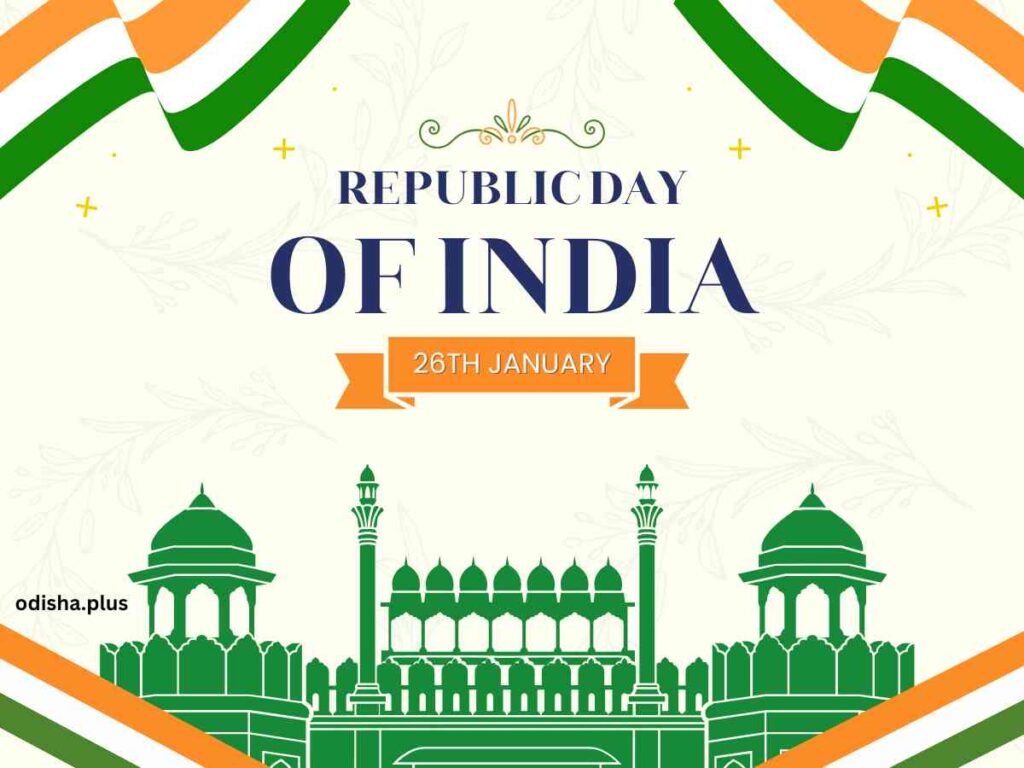The day serves as a reminder of India’s journey towards self-governance & ongoing commitment to uphold principles of justice, liberty, equality & fraternity enshrined in the Constitution
Mrinal Chatterjee

26 January. On this day in 1950, India formally adopted its Constitution, transitioning from a British dominion to a fully sovereign republic. The day serves as a reminder of India’s journey towards self-governance and the ongoing commitment to uphold the principles of justice, liberty, equality, and fraternity enshrined in the Constitution.
As a vibrant and diverse republic, India faces several challenges that test its democratic framework, socio-economic fabric, and developmental aspirations.
Economic inequality remains a pressing issue, with a significant gap between the rich and the poor. While India has achieved remarkable economic growth, ensuring equitable distribution of wealth and opportunities continues to be a challenge.
Unemployment and underemployment, particularly among the youth, hinder the realization of the country’s demographic dividend. The need for job creation, skill development, and labor reforms is urgent.
Social inequities persist, rooted in caste, gender, and religion.
Political polarization and corruption threaten the health of democratic institutions. Ensuring transparency, accountability, and the integrity of governance is crucial for maintaining public trust.

Environmental degradation, driven by rapid urbanization and industrialization, poses a significant threat. Challenges like deforestation, pollution, and climate change demand a balanced approach to development and sustainability.
Additionally, border tensions and internal security issues, including terrorism and insurgency, require robust defense and diplomatic strategies.
Maha Kumbh Mela
There is Kumbh Mela held every 12 years, and there is Maha Kumbh Mela held once in 144 years. The one that is underway in Prayagraj (formerly Allahabad), Uttar Pradesh, is Mahakumbh Mela.
It is deeply rooted in Hindu mythology and marks the divine moment when celestial nectar (Amrit) spilled on Earth during a cosmic tug-of-war between gods and demons.
The confluence (sangam) of three sacred rivers – the Ganga, Yamuna, and the mythical Saraswati – serves as the focal point of this event. Devotees believe that bathing in these waters during the Kumbh Mela cleanses sins, liberates the soul, and brings spiritual rejuvenation.
The 2025 Maha Kumbh Mela, which began on January 13, 2025 and is expected to end on February 26, could be the largest congregation of people with more than 40 crore people visiting the mela. Spiritual discourses, cultural performances, and devotional gatherings enrich the event’s vibrant atmosphere. Akharas (monastic orders) and revered saints play a pivotal role, leading grand processions and performing sacred rituals.
Beyond its spiritual significance, the Maha Kumbh Mela is a testament to India’s cultural diversity, unity, and rich heritage.
Mahasweta Devi@100
Mahasweta Devi, celebrated writer, social activist, and a powerful voice for the marginalized communities of India was born on 14 January in 1926. Born in Dhaka (now in Bangladesh), she was deeply influenced by her family’s literary and political background, which shaped her commitment to social justice.
Her prolific body of work, primarily in Bengali, includes novels, short stories, and essays that focus on the struggles of tribal communities, Dalits, and women against exploitation and oppression. Notable works like Hajar Churashir Maa (Mother of 1084), Rudali, and Aranyer Adhikar (The Right to the Forest) showcase her deep empathy for the downtrodden and her unwavering commitment to exposing systemic inequalities.
Mahasweta Devi combined her literary prowess with grassroots activism. She tirelessly fought for the rights of tribal communities like the Lodhas, Shabars, and Santhals, addressing issues such as land alienation, bonded labor, and the denial of basic rights. Her activism and writings often intersected, amplifying the voices of those silenced by mainstream narratives.
Her work earned her numerous accolades, including the Sahitya Akademi Award, Jnanpith Award, Ramon Magsaysay Award, and Padma Vibhushan (2006). Mahasweta Devi remains a towering figure in Indian literature, remembered for her fearless advocacy and profound impact on literature and society.
She breathed her last on 28 July 2016.
I had the privilege of translating her stories from original Bengali to Odia for NBT.
Monalisa
Monalisa Bhonsle, a 16-year-old garland seller from Indore, gained social media fame after videos of her selling rudraksha malas at the Maha Kumbh Mela went viral. Over time she became a sensation.
Artists started sketching and painting her portraits, poets started writing poetry on her mesmerizing eyes and captivating smile, cartoonists and caricaturists created cartoons and caricatures.
Suddenly came the news that she had left Kumbh Mela as she was harassed by people who wanted to take selfie with her. It also affected her livelihood as she was unable to sell garlands. She left Kumbh Mela fearing for her safety.
Despite her rising popularity, Monalisa’s experience highlights the darker side of viral fame, as her safety and livelihood have come under threat. Her story serves as a stark reminder of the need to balance admiration with respect for personal boundaries.
Gen Z
The Oxford Dictionaries define Generation Z as “the group of people who were born between the late 1990s and the early 2010s, who are regarded as being very familiar with the internet.”
I am intrigued by the way Gen Z live, work and conduct their life.
Recently Santosh Desai, one of the most original thinkers of our times wrote about Gen Z in one of his columns which kind of resonated with what I was thinking.
Gen Z harbours a profound paradox. They are simultaneously the most globally connected and the most individually isolated generation. They are never alone and always alone, never disconnected but feeling deeply detached.
Their relationship with institutions is transactional and provisional. They don’t join organisations; they collaborate with them temporarily. Loyalty is not to an employer but to a collective vision, a set of values.
This generation is creating new grammar for social and professional existence. They are not just changing workplace dynamics; they are reimagining the very concept of work, identity, and social belonging.
(The author is Regional Director Indian Institute of Mass Communication, IIMC Dhenkanal. Views expressed are personal.)
#RepublicDay #IndianConstitution #SovereignRepublic #DrBRAmbedkar #ConstitutionDay #MahaswetaDevi #SocialActivism #BengaliLiterature #WomenInLiterature #Monalisa #GenZ #DigitalNatives #YouthCulture #SocialChange #FutureOfWork


























